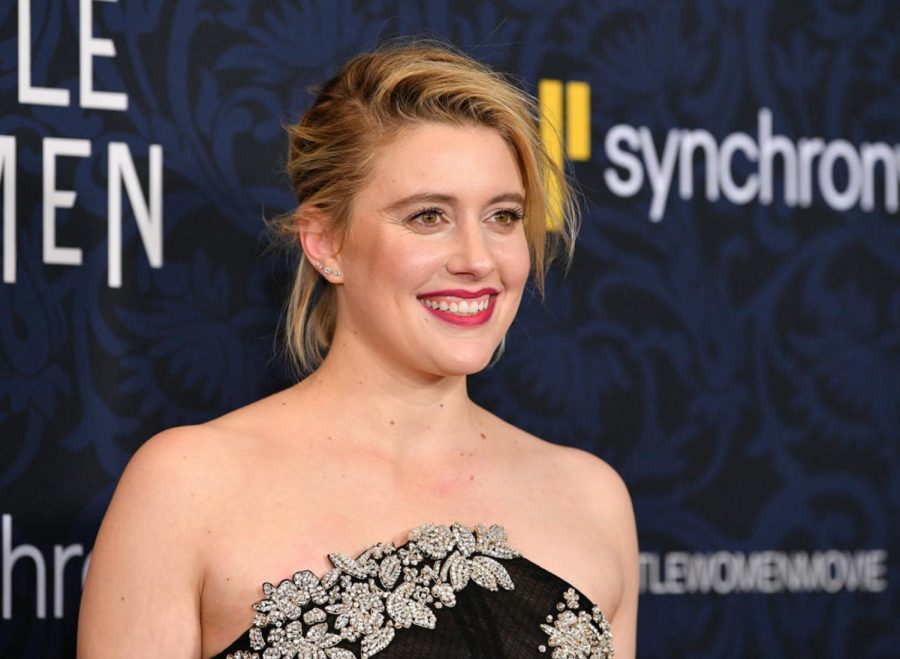Female directors deserve better
The 2020 Oscar nominations were recently announced and, for the 92nd year, they have disappointed. The full list of nominees can be found on the official Oscars website. Despite several well-reviewed films directed by women, zero women received nominations for best director.
This year’s nominees for best director include Martin Scorsese for “The Irishman,” Todd Phillips for “Joker,” Sam Mendes for “1917,” Quentin Tarantino for “Once upon a Time in Hollywood” and Bong Joon Ho for “Parasite.” While all these films received great box office praise, I can think of just as many films that also received high praise and were directed by women.
Greta Gerwig’s “Little Women,” Lulu Wang’s “The Farewell,” Marielle Heller’s “A Beautiful Day in the Neighborhood,” Lorene Scafaria’s “Hustlers,” Melina Matsoukas’s “Queen and Slim” and Kasi Lemmons’s “Harriet” are a few noteworthy female-directed films from the year.
“Little Women” thankfully did not get too snubbed this year. It received nominations for best picture, actress in a leading role (Saoirse Ronan), actress in a supporting role (Florence Pugh), costume design (Jacqueline Durran), music (original score) (Alexandre Desplat) and writing (adapted screenplay).
So, while “Little Women” is up for the best picture, it has nothing to do with Gerwig’s directing apparently. Who do they think helped make this film possible and successful?
One star of “Little Women,” Emma Watson, recently posted on her Instagram an excerpt from Gerwig in which she sounded grateful for the six nominations. She did not appear to be upset about the snub of best director.
“I am brimming with happiness—thank you, thank you, thank you, thank you, thank you, thank you (that’s six!) to the Academy. This film of Little Women has been over thirty years in the making, from the very first time Louisa May Alcott and Jo March reached across time and space and made me believe I could be a writer and creator. Every single person who worked on this film poured their heart and soul into it, and we are all so grateful to the Academy for recognizing the collective effort,” Gerwig wrote.
While this is disappointing, especially given the fact that it is 2020, women have come quite far, and that they released some pretty great films this year, it is not really surprising.
According to an Instagram post from the New York Times – Gender, only five women have ever received a nomination for best director.
This is frustrating and frankly ridiculous and confusing.
We can begin to better understand and address this problem by starting with the process of something or someone receiving an Oscar nomination.
According to the Oscars‘ about page, the Academy of Motion Picture Arts and Sciences is made up of over 8,000 men and women in the film industry. Each year these 8,000 people in 17 different categories based on their position (director, actor, etc…) first vote for nominees in their respective category. So, directors are voting to nominate directors, actors for actors, and so on and so forth for each category. This seems reasonable since those nominating are experts in their categories, but it is these individuals that are voting with which I have problems with—how can other directors not see Gerwig’s brilliance?
Once the nominees are chosen, all the Academy members get to cast their winner votes across every category.
How nominees and eventually winners are chosen does not seem to be the problem. Instead, the issue of a lack of diversity—amongst gender and race—lies with the actual people voting. This process can be revamped and hopefully become more inclusive by having a more diverse set of Academy members.
While statically you would think with 8,000 members there would not be a diversity issue, there apparently seems to be so. Or, the members are inherently biased against women and people of color.
According to the Oscars membership branch requirements, each of the 17 different branches has a set of requirements that each potential member must meet. For instance, to apply for membership in the directors branch, you must have directed at least two films within the past 10 years, have directed a film nominated “for the Academy Directing Award, for the Academy Best Picture and/or for the Academy Foreign Language Film Award” or otherwise achieved unique distinction as a director.
Because of requirements like this and Hollywood’s touch and go relationship with women and people of color, this begins to add to the issue. So, this issue of diversity among the Oscars really strikes down the core of Hollywood’s problems with diversity. And to even begin to address the Oscars and other award shows’ issues, we need to start at the very root, which may not be as simple as we would like it to be.
All in all, the Academy needs to be more considerate of women in regard to unisex categories like best director. Hopefully next year we will finally start to see some improvement in this issue and I will not have to continue to address it.



![A map of emergency callboxes on campus. (UNCW) [hyperlink: https://uncw.maps.arcgis.com/apps/webappviewer/index.html?id=579a0e90030c4864a41c70fbe06338d9 ]](https://theseahawk.org/wp-content/uploads/2023/12/IMG_6388-600x277.png)



